As a church we are embracing the habits explored in the book The Seven Habits of Highly Effective People, by Stephen Covey. These habits are also being integrated by a couple of local schools through the ‘Leader in Me’ program, a highly principled character formation process.
These habits represent attitudes that lead to positive behaviours. We believe them to be consistent with the way God designed humans to live. We are just learning to practice them, and welcome you to join us in practising!
Habit #1: Be Proactive.
This habit especially encourages us to show initiative and to take responsibility for our lives and our actions. Covey speaks about two circles: the circle of influence and the circle of concern. The circle of influence is what we have some control or influence over – our own lives and attitudes. The circle of concern represents all those external factors that we may be concerned about, including the way other people may have chosen to treat us.
Being proactive is to live in such a way that we choose freely how to act, without seeking to blame others for our actions. “At the very heart of our Circle of Influence is our ability to make and keep commitments and promises.”
For us as a church, this means we take responsibility to shape the best future that God desires for us and for others, whatever the challenges we face, over which we frequently have little control.
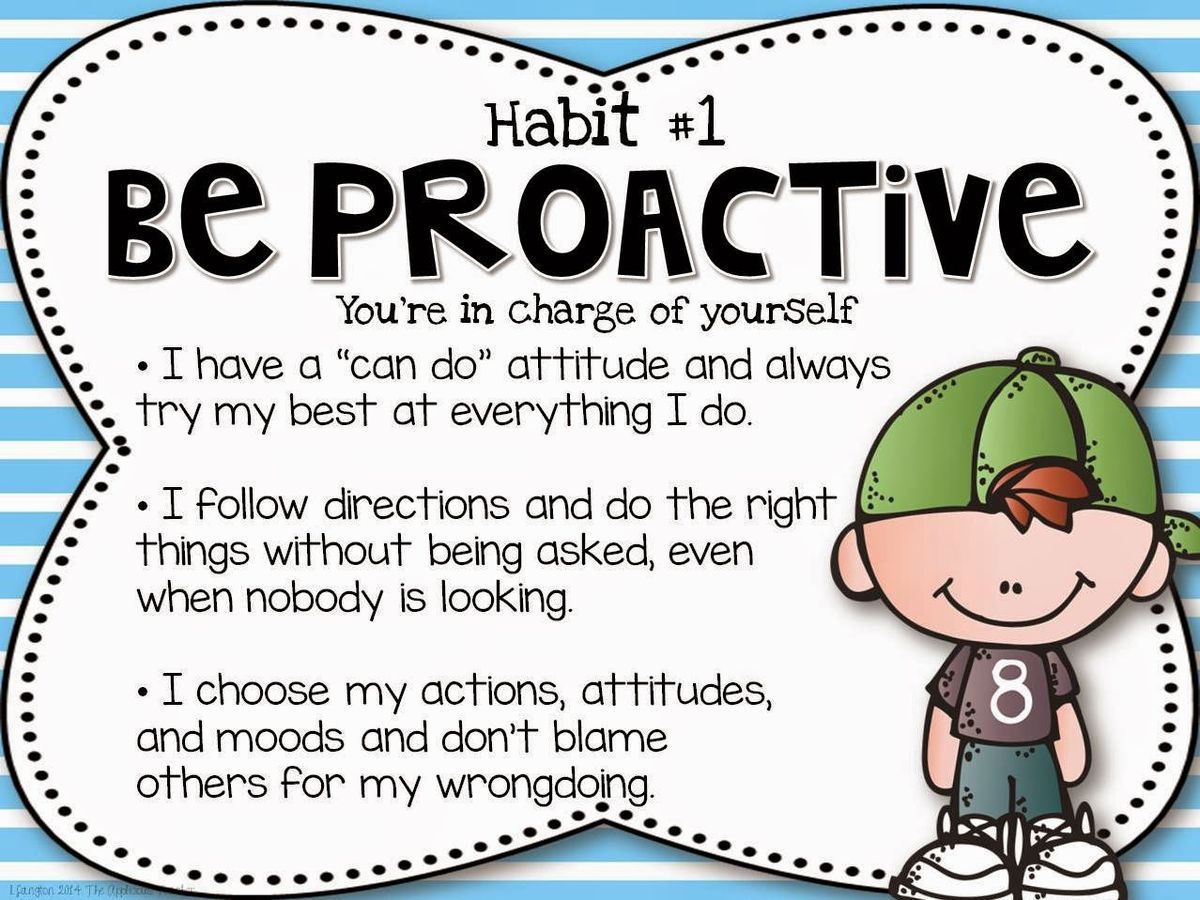
Habit #2: Begin with the end in mind.
When you build a house you need a plan before you begin! This habit is about seeing the bigger picture, beginning to see the ways the little everyday things we do contribute to a larger picture and goal. Laying bricks is part of building a house, changing nappies is part of raising a new-born, but in both cases you know these are the steps involved in achieving a larger purpose. Yet sometimes we can be so focused on the daily tasks we lose track of what we are seeking to achieve, and whether we are actually progressing towards it.
For us as a church this leads us to reflect on how we can best work towards the goal of enabling people to know God and be part of His kingdom life, renewing the world. This is a habit, and a skill about which we have much to learn.
One way the Bible expresses this habit is through a vision of the future. The prophet Isaiah looks forward to a time when “the earth will be filled with the knowledge of the Lord as the waters cover the sea” (Isaiah 11:9). That is to say, when creation is restored to the peace and harmony and the intimacy with its Creator as first intended.
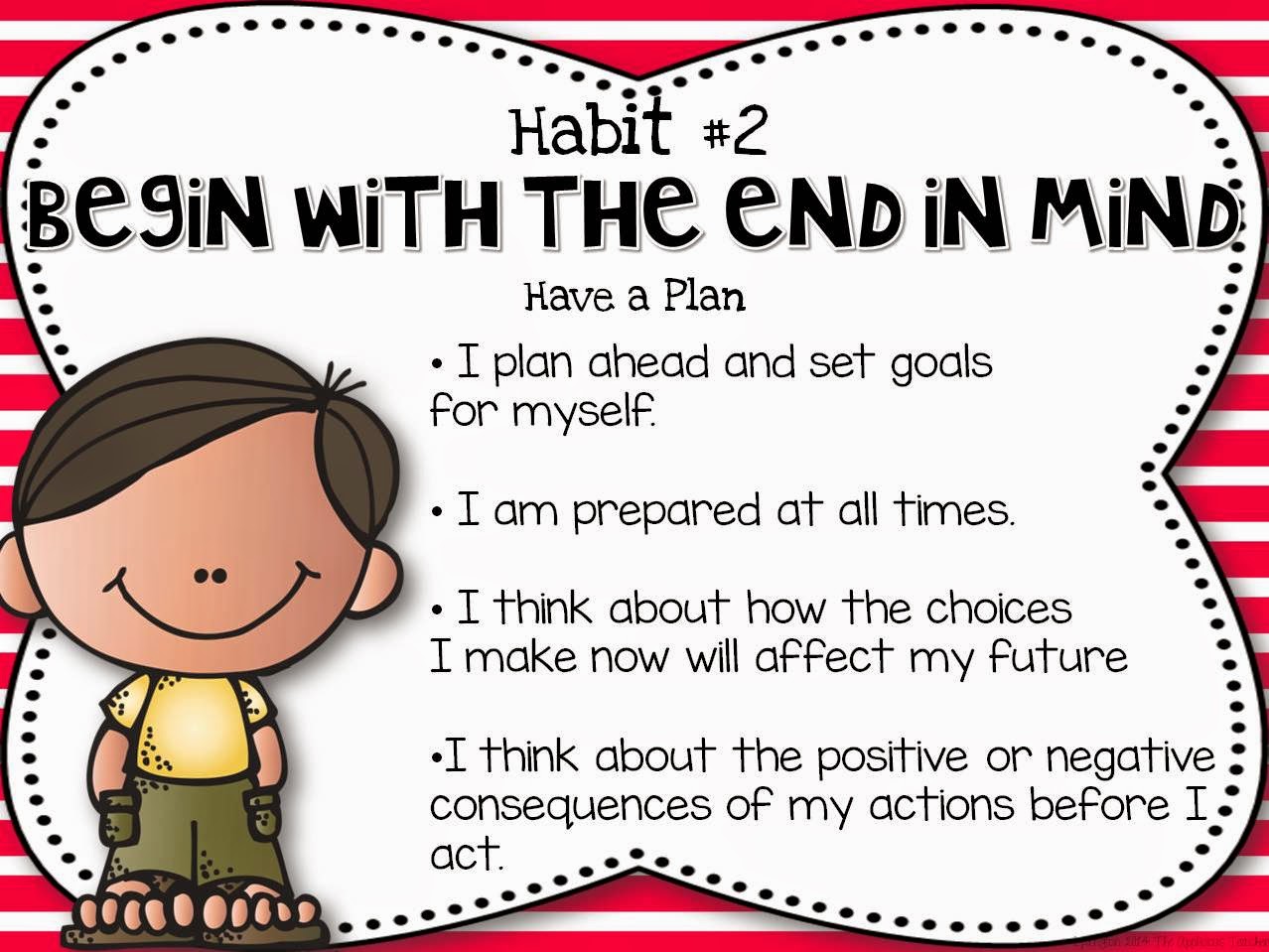
Habit #3: Put first things first.
We are procrastinators. We can easily find reasons to put off those things we really don’t want to do. That may not matter too much if it’s weeding the garden, but it may matter more if it’s taking the weeds out of our own attitudes and actions.
This habit is about prioritising those things that express being proactive, and which move us toward the goal or mission we identified in habit 2. What are the most important things in your life? Prioritise around them so that your life is the best it can be.
Jesus says, “Seek first his kingdom and his righteousness and all these things will be given to you as well” (Matthew 6:33). In other words, orienting our life to God’s ways will help all aspects of life to find their proper place.
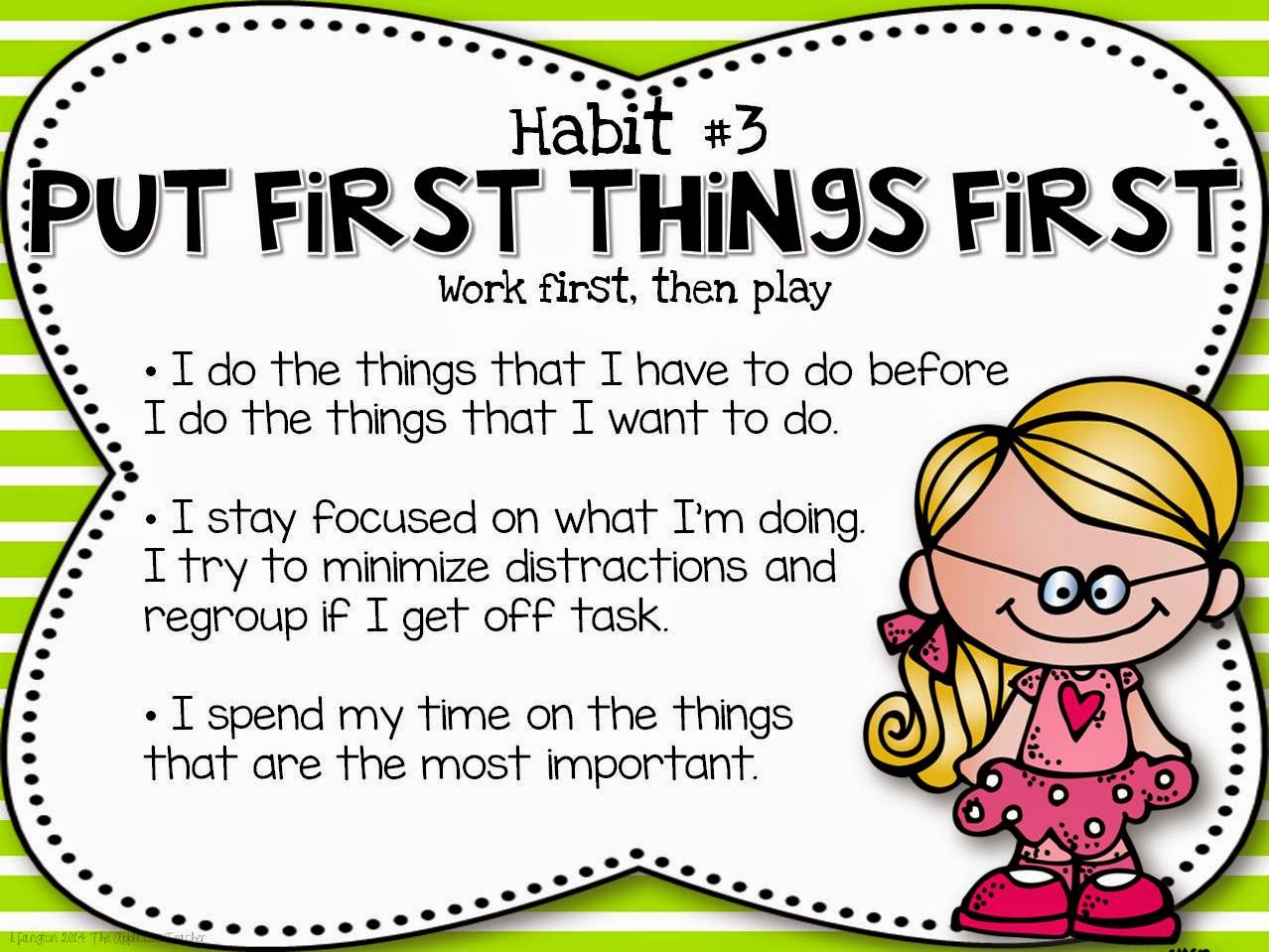
These first three habits connect with personal practices we adopt. They help develop us as individuals, and build our character. The second three habits help build inter-dependence. That is to say, healthy relationships with others – not overly dependent, yet also not too independent.
Covey outlines six ways we can contribute to this taking place. Like the habits, these principles will contribute to healthy relationships, whatever the setting may be. They are like investing into an emotional bank account . 1. Understanding the individual – valuing the other person for who they are. 2. Attending to little things. Little kindnesses and courtesies make a big difference. 3. Keeping commitments. When we make a promise and fail to keep it, it is a major withdrawal of trust in a relationship. 4. Clarifying expectations. We all have expectations of others. When you are working with others, being clear about these avoids misunderstanding and disappointment. 5. Showing personal integrity. Who you are in private is who you are in public. 6.Apologising sincerely when you let another down. It is one thing to make a mistake, and quite another thing not to admit it.
These six relational principles feed into the next three habits.
Habit 4: Think Win/Win.
The underlying thought here is that one person’s success doesn’t come at the expense of others. It’s creating a culture that works for everybody and where everybody can be their best. It is very easy in our culture to be fractured, to break into factions, to feel passionately about a subject, and see those with a different view to be overcome. It may not always be easy to find Win/Win solutions. Sometimes it’s ‘No Deal’. The mindset, however, is built upon our shared humanity, not viewing others as ‘enemies’ to be defeated, but people with whom to engage, even if there is difference.
“Think Win-Win is the foundation for getting along with other people. It begins with the belief that we are all equal, that no one is inferior or superior to anyone else, and no one needs to be.”
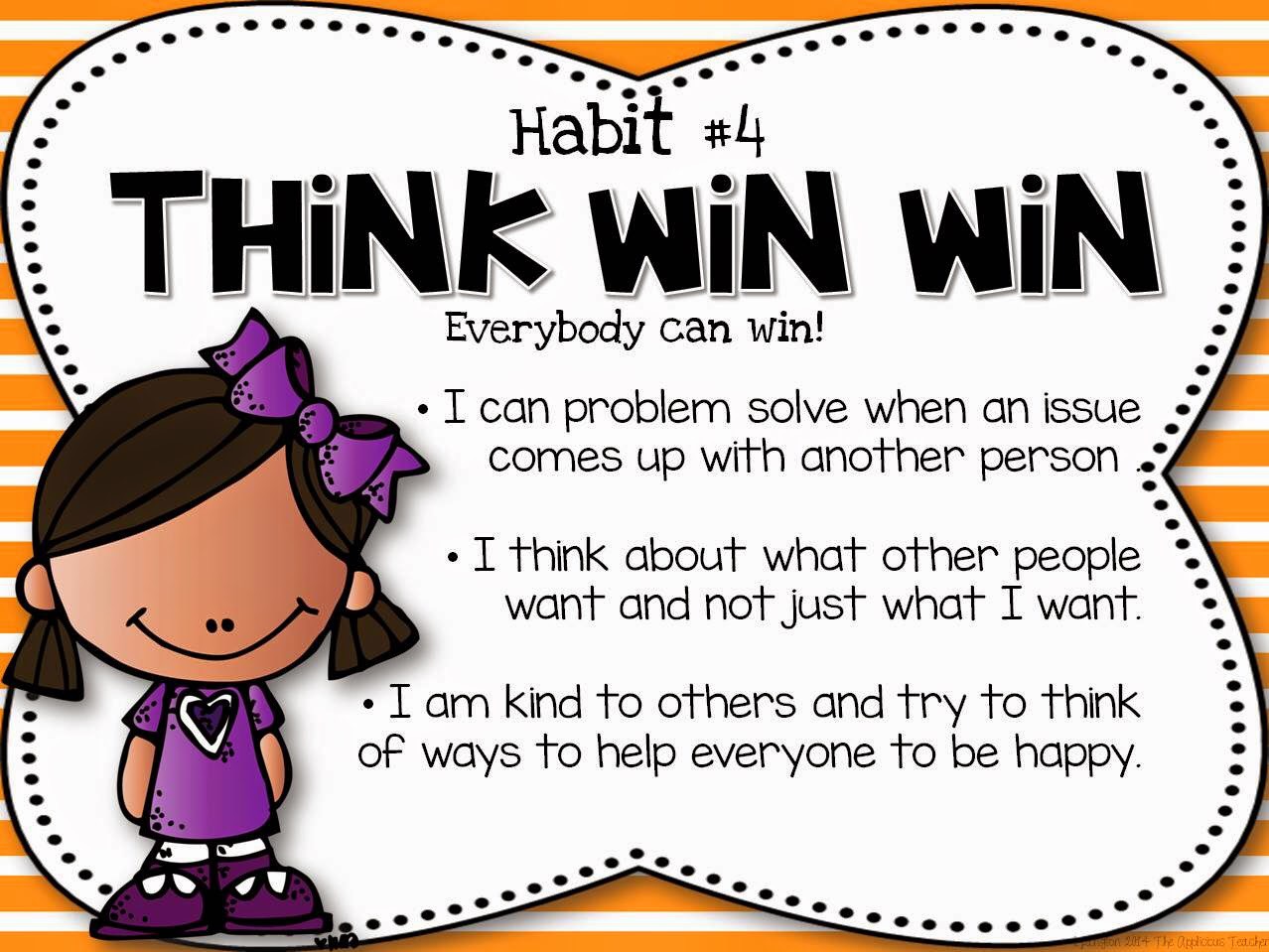
We believe that from the very beginning God made humans “in his likeness” (Genesis ch 1). That is to say, humans are given a sense of having great value, and human life is therefore to be respected and people to be treated well. The history of humanity is often about apparent winners and losers. To think Win/Win accords with Jesus plan to bring all things to unity. How might you contribute to Win/Win solutions in your home or work or church or group?
Habit 5: Seek first to understand, before being understood.
This is such a powerful habit for human relationships. Our natural tendency is to think our own view is the most important one and we are so keen for others to understand it, that we are slow to listen to them. “Empathic listening”, says Covey, “gets inside another person’s frame of reference. You look out through it, you see the world the way they see the world, you understand their paradigm, you understand how they feel.”
Real communication and trust can take place from that point.
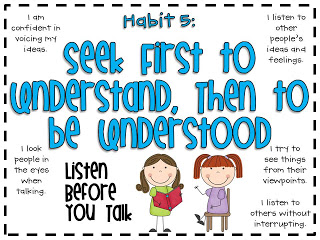
Jesus says “why do you look at the speck of sawdust in another’s eye, and pay no attention to the plank of wood in your own eye?” (Matthew 7:3). In other words, we can be quick to rush to judgment on other people, but slow to see our own shortcomings. Seek first to understand before being understood.
Habit 6: SYNERGISE.
That’s a big word. And a powerful concept. The whole is bigger than the parts, One plus one equals three. It’s teamwork, it’s people working together to achieve so much more than they could alone. Covey writes, “the whole is greater than the sum of its parts. It means that the relationship the parts have to each other is a part in and of itself. It is not only a part, but the most catalytic, the most empowering, the most unifying, and the most exciting part.”
Synergy can be seen when one person has an idea, and it sparks a further idea in someone else, and as they talk about it the idea forms and shapes and grows into something more. Synergy can be seen when the gifts and talents of one person work together with those of another, for another goal.
The best of human relationships is built on synergy, itself grounded in the habits which have gone before.
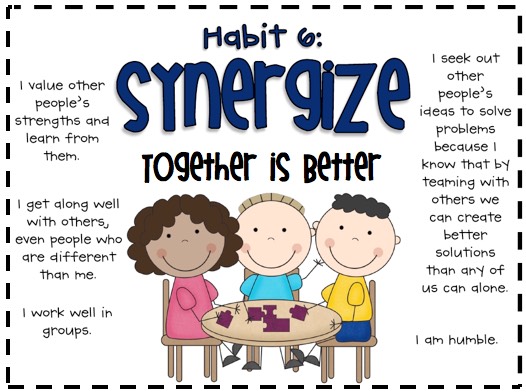
We see in the scriptures how synergy is at the heart of how the church is to operate. In the letter to the Romans, Paul writes, “In Christ we, though many, form one body, and each member belongs to all the others. We have different gifts, according to the grace given to each of us.” (12:5,6) Church is team. It’s our desire to work as team, and synergise, as best as we can.
Habit 7: SHARPEN THE SAW.
Habit 7 relates to personal self-care. It is easy for us to become addicted to constant busyness. We fill up each day – even with very constructive and God-honouring endeavours. We are so engaged with activity we don’t have a chance to step back and re-fill our spiritual, emotional and spiritual tanks.
Covey specifies four areas:
- Physical: exercise, nutrition, stress management.
- Social/emotional: service, empathy, synergy, intrinsic security.
- Spiritual: value clarification and commitment, study and meditation.
- Mental: reading, visualising, planning, writing.
Covey comments, “I find renewal in daily prayerful meditation on the
scriptures because they represent my value system. As I read and
meditate, I feel renewed, strengthened, centred, and recommitted to
serve.”
Habit number 7 represents the Sabbath principle – we all need to
prioritise time out. The busier we are, the more vital it becomes. How
might you be sharpening your saw right now? What area of your life
needs more attention?

